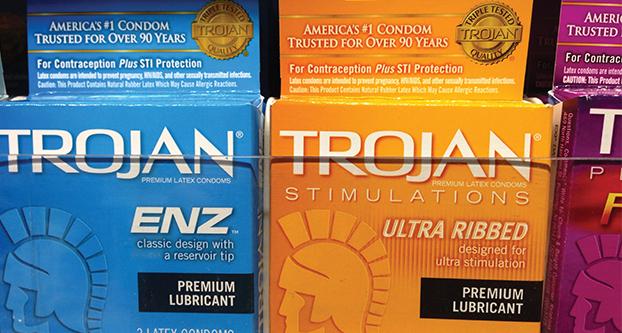Fresno State climbs to 40th this year on the 10th annual Trojan Sexual Health Report Card.
Out of 140 universities nationwide, Fresno State moved up 10 spots from 2014.
Every year, Sperling’s Best Places, an independent research company in Oregon, sends out questionnaires to student health centers evaluating them on 10 categories, said Bert Sperling, president of the company.
The research firm looks at different resources, services and information that are provided to students by student health centers and their websites to help students make their own best, safest and smartest decisions when it comes to having sex and sexual health, Sperling said.
“Generally, the schools that are ranked at the top and schools that didn’t rank as well have made this a real focus as far as getting information out to students,” Sperling said. “It’s a thing they feel very strongly about, and there’s much more intensive focus for this kind of information, materials and services by the schools that rank near the top.”
Some of the 10 categories that are evaluated and scored on a one to 10 basis include: the cost and availability of HIV/STI testing; campus onsite testing as opposed to sending students to county health facilities; availability and cost of contraceptives; lecture and outreach programs; sexual assault programs; and sexual health website content.
“It’s interesting because in the 10 categories that Trojan utilizes, they talk about sexual assault programs, and one of the newest things we have on campus is a victim advocate,” said Kathy Yarmo, Fresno State’s coordinator of health promotion and wellness services.
If a student has experienced any sort of sexual assault, the students can see her as a victim advocate. Lisa Risch is the Fresno State campus advocate. Whether or not they press charges, she’s there to connect them with resources, Yarmo said.
Compared with the previous year, Fresno State has improved by one point in the sexual health website content, availability of HIV/STI testing and availability along with information on male and female contraceptives, Sperling said.
According to her, some ways that Fresno State can advance are by being more active in lectures, student contact initiatives, outreach programs and student peer groups focusing on being safe and responsible.
“Top-ranked schools have a number of unique what we call, extra credit,” Sperling said.
The University of Oregon for example, who placed first this year, developed a smartphone app about safe sexual health practices, which scored heavily in the extra credit category.
Other top-ranked schools have weekly columns in their student newspaper that talk about sexual health-related issues and have professionals answer questions that students anonymously submit, Sperling said.
The Student Health Center has many services and resources involving sexual health, including keeping the students engaged through entertaining events.
Condom Casino, along with Sex Jeopardy, are some interactive ways to address sexual health topics. Sex Jeopardy is a question presentation, which it’s like Jeopardy but the questions are sexual health-related, said Danielle Mendoza, a sexual health student assistant.
“Condom Casino last spring was a great interactive way for students to learn about sex education. It generated a lot of attention throughout the campus,” Mendoza said. “I’ve scheduled 30 Sex Jeopardy presentations, and I’ve done 27, so far. At the end of it, I should have reached over 700 students,” Mendoza said.
Other sexual health resources the Student Health Center has to offer include: Family Planning, Access, Care and Treatment (Family PACT), a state program that covers expenses with anything sexual health-related for qualified students; and a Condom Sense brochure that has been revamped to educate students on how to use a condom the right way and the Condom Access Program (CAP) that supplies students with free condoms in the lobby and waiting areas.
The Trojan Sexual Health Report Card is a way to cast a positive light on what schools are doing to provide students with the kind of information they need to be smart and safe, Sperling said.
“It’s been very encouraging for us as researchers to provide this information to students and have them use it as a catalyst for positive change,” Sperling said. “All the schools that we’ve looked at have made quite an improvement, and it’s getting much more competitive.”




